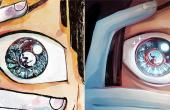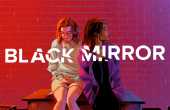aprosaicpintofpisces
Contributing writer for The Artifice.
Correspondent II
- Plebian Penman
- Common Writer
- Lurker
- Pssst
- Hand Raiser
- Vocal
- Outspoken
- Sharp-Eyed Citizen
- Town Watch
- Detective Deskman
- Animator
- Article of the Month
- ?
- Articles
7 - Featured
7 - Comments
196
- Ext. Comments
90 - Processed
31 - Revisions
27
- Topics
13 - Topics Taken
6 - Notes
30
- Topics Proc.
197 - Topics Rev.
25
- Points
5316 - Rank
21 - Score
2755
Latest Articles
Latest Topics
Digital De-Aging and Resurrection: Its History and the Long-Term Implications for the Film IndustryDigital de-aging has been around in the film industry for some time now, but its use has increased substantially as CGI technology continues to improve. Age-acceleration is also used, but winding back the clock instead is usually the more difficult feat to pull off well. What was once laughably unconvincing has now become an eerily good imitation. Instead of relying on younger actors to portray popular characters in flashback scenes, one can simply strip away the wrinkles and keep the visuals of the original actors intact. Think of a de-aged Johnny Depp for flashbacks of his character Jack Sparrow in The Pirates of the Caribbean: Dead Men Tell No Tales or Harrison Ford’s Indiana Jones in the recent Dial of Destiny film, for example. Beyond that, one can digitally resurrect lost talent whether their deaths were abruptly in the midst of shooting a film or they passed away long ago (and never would’ve imagined such technology could exist). When Carrie Fisher unexpectedly passed, existing footage was apparently salvaged and cobbled together with CGI to fill in the gaps to reproduce Princess Leia for The Rise of Skywalker film. For a Dove Chocolate commercial, a likeness of deceased Hollywood icon Audrey Hepburn was used. Give some examples of films that successfully handled digital de-aging or resurrection as well as others that missed the mark. What went wrong and what went right? Before this technology was ever imagined and accessible, how did films handle the aging and deaths of actors? What does this mean for the future of the film industry, in terms of actors and production companies, etc.?
|
True History of the Kelly Gang: Motherhood and MasculinityIn the film True History of the Kelly Gang, a fictional take on the outlaw Ned Kelly’s life, relations between Britain and members of the Commonwealth (in this case, Australia and Ireland in the 1870s) play a central role. Themes of displacement begin with Ned’s Irish-born parents’ (especially his mother’s) sense of alienation in Australia and distaste for anything that reeks of British influence. This feeling continues with Ned’s propulsion into the role of “man of the house” when his father dies and then when his mother secretly attempts to sell him into servitude for some quick money. Derision of authority figures partially stems from forced separation from or abandonment by one’s home (whether it is one’s country or familial circle). In connection with relations between nations of different power dynamics, gender plays an important role here as well. Despite the reluctance to perform an expected role, there is a strong male desire to be powerful enough to defend female honor from outsiders (i.e. the sexual exploitation of Ned’s mother and sister) that culminates in the Kelly Gang’s string of police-related murders. Ned is encouraged to “Die a Kelly” and give up his own life for his mother, even if it is at the expense of his unborn child and its mother. Ned’s entry into gang life begins as a “Son of Sieve,” an Irish rebel who dons overtly feminine dresses into battle to appear crazy and, therefore, more frightening. By the end of the film, in contrast, Ned Kelly is finally captured after wearing heavy, uber-masculine “bulletproof” armor in a gunfight that results in the bloody massacre of his men. What connections are made in the film between male and female dynamics and Britain’s relationship to members of the Commonwealth? How does simultaneous suicidal devotion to a reigning power and an internal aversion to fighting someone else’s battle with the promise of little to no personal benefit play out? What does the film have to say about these opposing tensions and their consequences within this fictionalized depiction of Ned Kelly? |
Books Without Blessings: The Watch and DiscworldThe recent BBC America production, The Watch, has received polarized reactions. It is inspired by characters from Sir Terry Pratchett’s Discworld book series, though it does not claim to be a direct adaptation. If one alienates the people who are already self-proclaimed fans of a certain work, where can one go from there? How important is the original author’s or family estate’s approval of an adaptation for a TV show or movie to be considered successful? Sometimes deviations allow for greater artistic license, but it can come at the cost of bearing little resemblance to the original source material and turning off the already-established fanbase. Alternatively, when sticking closely to the source material, it can attract a large number of people who are already invested in the characters and storylines but may also lead to sanitization and excessive caution in an effort to preserve the work’s and the author’s existent legacy. There are also legal issues to be considered here. Sometimes the difference can be a result of ownership (or lack thereof) of the author’s estate/works. One could examine The Watch’s resemblance and departure from the Discworld series and/or other similar ventures and their outcomes. |
Exploring the Nom de PlumeWhat causes someone to choose a "nom de plume" ("pen name")? While living in the Internet age, most people are completely comfortable with the idea of identifying themselves online with names other than those they were born with (i.e. usernames). When it comes to writers, the Brontë sisters all used male pseudonyms in order for their work to be taken more seriously. J.K. Rowling was encouraged to hide her sex when the Harry Potter series was initially published because it was feared young boys would not read her work otherwise. Later, J.K. Rowling herself disguised her world-famous name with the pseudonym "Robert Galbraith" when she departed from Harry Potter-related works. However, it is not only women who take up a "pen name." Lewis Caroll, Mark Twain, and George Orwell are just some examples of this. Much like a "stage name" can serve to reinvent oneself into a more exciting character than one’s birth name would initially suggest, what are the myriad reasons for which authors choose nom de plumes? What do they seek to change or perhaps maintain? Have the reasons for pen names changed over time? If so, how?
|
Morality and DisclaimersThis is a topic that could apply to either movies or television. Disclaimers range in purpose. Sometimes they exist in order to lessen chances of physical discomfort in the audience (and thus potential lawsuits), as with seizure warnings for flashing lights (i.e. a scene in Incredibles 2) or motion sickness warnings with 3D or IMAX films. Mel Gibson’s The Passion of the Christ was flagged for its graphic depiction of Jesus’s crucifixion. However, disclaimers have extended their reach beyond the physical realm into the psychological. For instance, the ratings system that differentiates between what is appropriate for certain age groups can sometimes be misleading. Often in preface to cast and crew interviews, there is a text that states “the views and opinions expressed are those of the individual and do not represent those of [insert company name here].” When the Netflix series 13 Reasons Why first premiered, there was controversy it would romanticize and therefore increase the likelihood of suicide in tweens and teens. When Joker was released, there was a fear that burgeoning mass shooters would be emboldened by the film’s protagonist into taking the law into their own hands. Stanley Kubrick’s film adaptation of A Clockwork Orange was banned because of its depictions of hedonistic violence. Just recently, the classic Gone with the Wind was briefly removed from HBO Max and then reinstated with disclaimers for fear of its depictions of the antebellum South. Disclaimers step in as “gatekeepers” of sorts, where films or T.V. shows must pass a certain purity “litmus test” to gauge not only their potential offensiveness to audiences but their ability to corrupt their audience’s minds. In what ways does this “moral panic” manifest itself in the form of media disclaimers? The threat of exploring or even simply acknowledging so-called “dangerous ideas” is oft-treaded territory, such as with George Orwell’s notions of ”groupthink.” How does the struggle to protect an unsuspecting audience devolve into a form of thought control? In what ways have such disclaimers proved beneficial?
|
Published | The Cinematic Space OdysseyMovies such as Gravity, Arrival, or the upcoming Passengers and Life films showcase the persistent human curiosity about outer space and who else (if anyone at all) is out there. We’re no longer in the era of little green men coming to invade the Earth in their silver flying saucers to abduct us or otherwise probe our brains. Cinematically speaking, how has the human vision of extraterrestrial life and exploration changed over the years? How have certain historical landmarks in the space program transformed what moviegoers want and expect to see in outer space-themed films? Has the recent media coverage about a possible mission to Mars in the not-too-distant future shifted the cinematic focus away from an interest in aliens to issues of human evolution/multi-planetary colonization? Is there something else at work here?
|
The Challenges of Writing Second Person Point of ViewUsing second person point of view isn’t exactly common when it comes to literature. It often brings to mind "Choose Your Own Adventure" stories, but not likely much else. Novels often seek to put the reader into the protagonist’s shoes so to speak, which second person point of view literally does, so what accounts for its limited use? Examine what puts this type of narrative at a disadvantage compared to the more popular first-person and third-person points of view in novels. What are some examples that make good use of second person point of view and how they successfully navigate its pitfalls and/or subvert its expectations?
|
The Role of Opening CreditsTV opening credits obviously let viewers know who the main cast is as well as give everyone involved in the process their due. The aesthetics and artwork of each individual show’s credits can also persuade the audience into participation. How do opening credits function depending on what shows one is watching? There are certain shows that begin with catchy themes, eye-catching graphics, or contain "easter egg"-like codes/foreshadowing. There are others which keep the visibility of opening credits to a minimum, perhaps to heighten the realism of the show’s fictional world. How does the nature of certain shows determine the way opening credits are presented to the audience?
|
Latest Comments
| Reinventing Beth March | |
Thank you, Stephanie! Yes, both Coraline and the Other Mother alone are great sources of inspiration. There are a lot of avenues that can be explored with the source material. And that sounds like a cool idea for an article as well! | Laika and the Power of Eyes: A Soul's Quest for Self-Possession |
Thank you so much! Your comment really made me smile. I’m glad you appreciate it. | Laika and the Power of Eyes: A Soul's Quest for Self-Possession |
What a lovely compliment, Anne! Thank you so much for your support. | Roland Barthes: Love as a Language |
Haha! Yeah, that was certainly a memorable “seduction dance” if ever there was one. | Exploring the Sensual Power of Dance in Cinema |
I’m with you there, omgmaxsmith! Laika films are consistently excellent. | Laika and the Power of Eyes: A Soul's Quest for Self-Possession |
Yes, I definitely think that quote relates strongly to Kubo’s journey. Good points, Lilah! Kubo proves he is the better man by refraining from what his grandfather would do so easily and without remorse (a feeling tied to retaining one’s humanity). | Laika and the Power of Eyes: A Soul's Quest for Self-Possession |
Thank you for the lovely comment, E. DeWitt! I truly appreciate the kind words. And yes, I highly recommend watching Kubo and the Two Strings as well. | Laika and the Power of Eyes: A Soul's Quest for Self-Possession |







Yes! I always loved their sisterly bond. Jo and Beth can seem like such polar opposites sometimes, but that’s also why they seem to balance each other out so well.